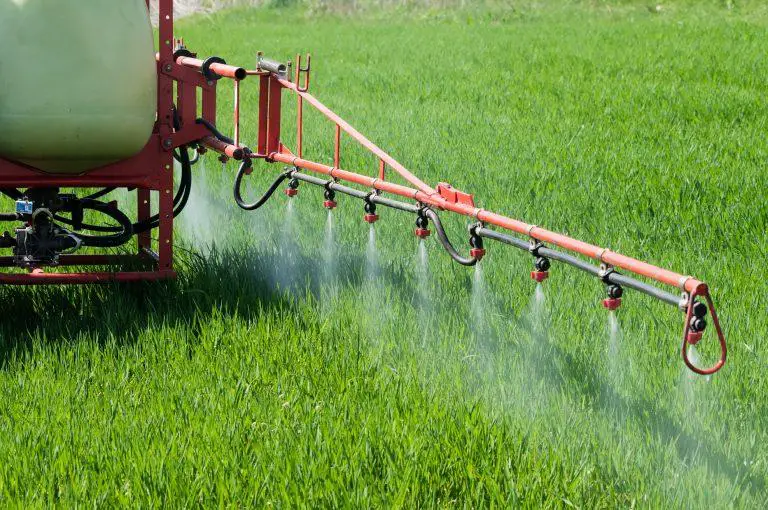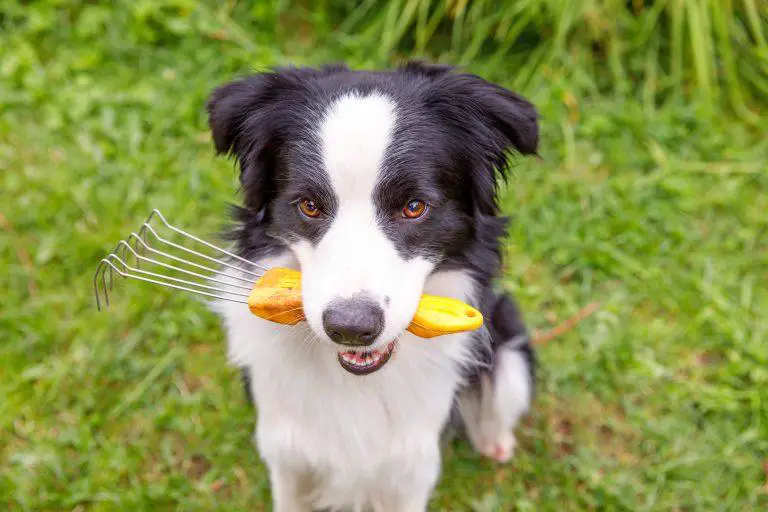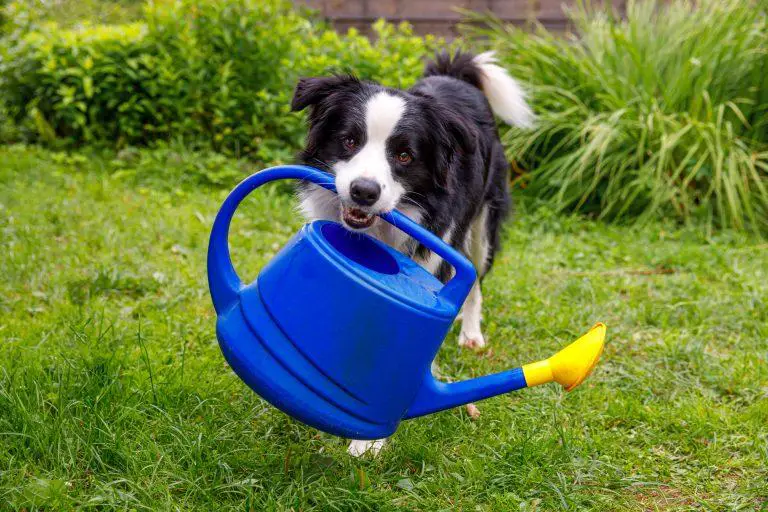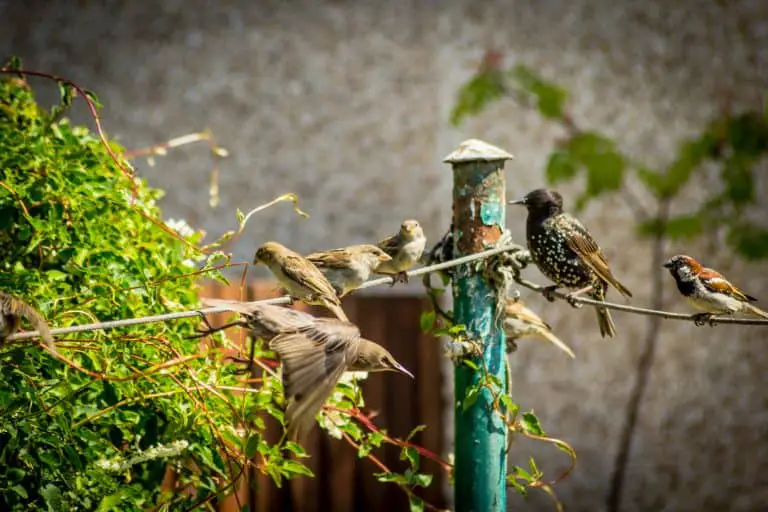Weed killer and chickens – a bad combination
What weed killer is safe for chickens? This is a question that many pet owners ask themselves. There are a lot of different weed killers on the market, but not all of them are pet friendly.
Some may cause vomiting or diarrhoea, while others might be fatal if ingested by a pet. The good news is that there are some safe options as well. In this article, we will discuss what types of weed killer your chicken can safely come into contact with and which ones to avoid at all costs!
What weed killer is harmful to chickens?
Weed killers can cause harm to pets at a certain dosage. Be sure when purchasing weed killers that they are pet-safe so you don’t risk harming your chicken or another animal with accidental ingestion, inhalation, and/or skin contact from the product.
IMPORTANT NOTE: All weed killers can be harmful to pets depending on their concentration and the way a human or animal ingests the chemicals. If you need to carry out weed spraying with animals, then do so with your pets safely locked in the house. Wait until the weed killer is fully dry before letting your pet back into the garden. Better to be safe than sorry.
Pets should be supervised outside while using these products to reduce exposure risks.
Some weed killers contain substances that are harmful to pets. Glyphosate is a common ingredient in many popular weed killers and herbicides, but the use of it on lawns or other areas where animals live can be dangerous if they ingest any residue from these products.
An example of another substance found in some weed killer brands is permethrin which is an insecticide used for killing insects such as aphids and grubs but also has been known to irritate chickens’ skin when they come into contact with it.
Other chemicals found commonly in certain types of weed killers include diquat (a chemical that kills broad-leaf weeds), triclopyr (a herbicide that attacks woody plants), and clopyralid (another herbicide that kills broadleaf weeds).
Many of the ingredients in weed killers are generally safe for chickens as long as they don’t ingest any from direct ingestion. If you want to be on the safe side, it is recommended not to use them near areas where your chicken frequents or when there haven’t been enough days between applications and rainfall.
It’s also important to dispose of old bottles carefully since some chemicals can leech out over time while sitting unused in a garage.”
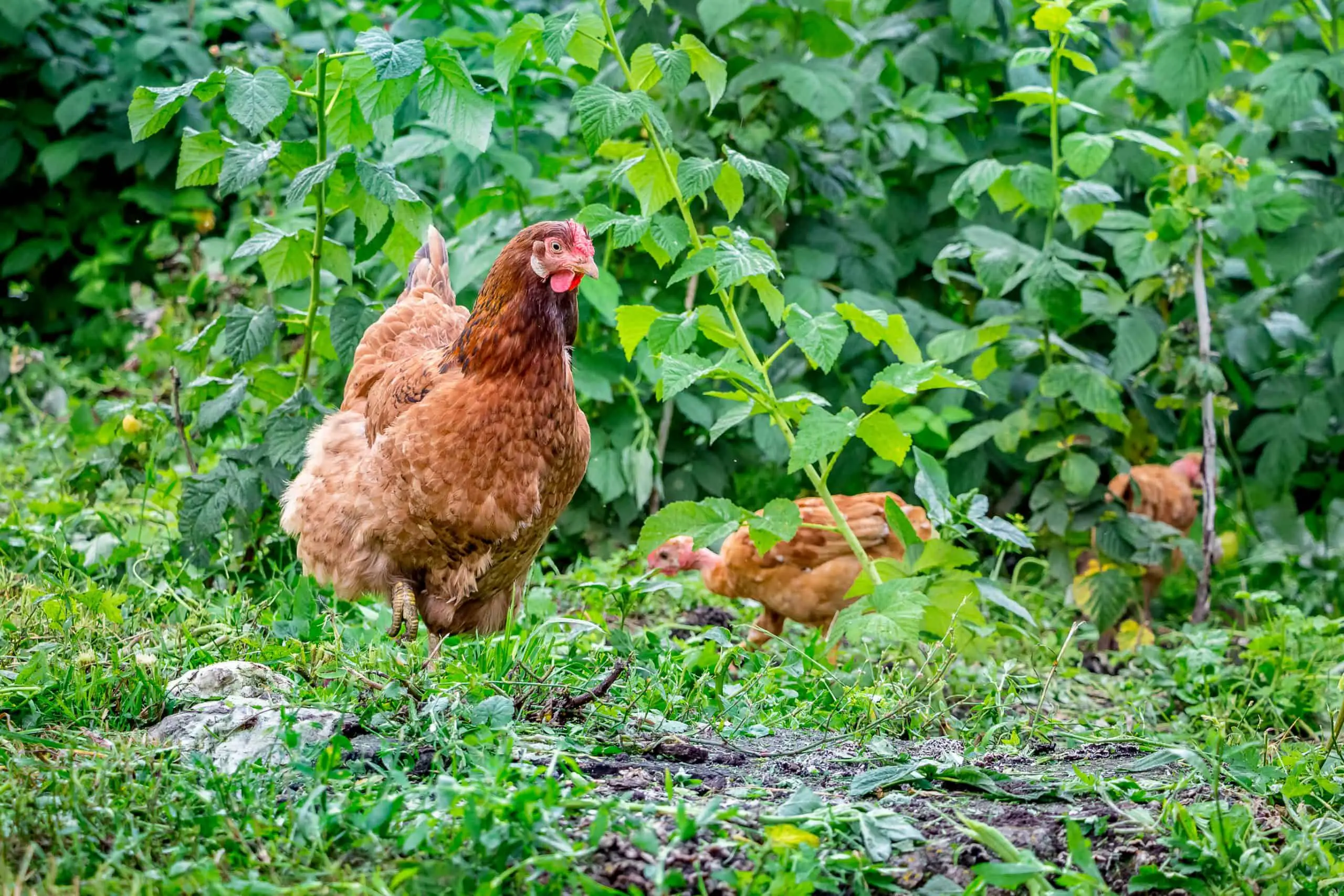
Are fertilizers safe around chickens?
Fertilizers are also a common household item that can put your chicken in danger if they’ve ingested any of it because weed killers will be mixed into the soil and may not be labelled properly on the container, so make sure to keep them locked up when not being used.
If you want to use weed killer for gardening purposes with your pets nearby, use vinegar or salt water as an alternative – both work well at killing weeds without using harmful chemicals,” says Dr. McReynolds. “They don’t have many of the same risks associated with other herbicides.”
To avoid accidentally spraying plants near chickens while applying weed killer or fertilizing, try marking off an area where animals won’t venture by using stakes and string.
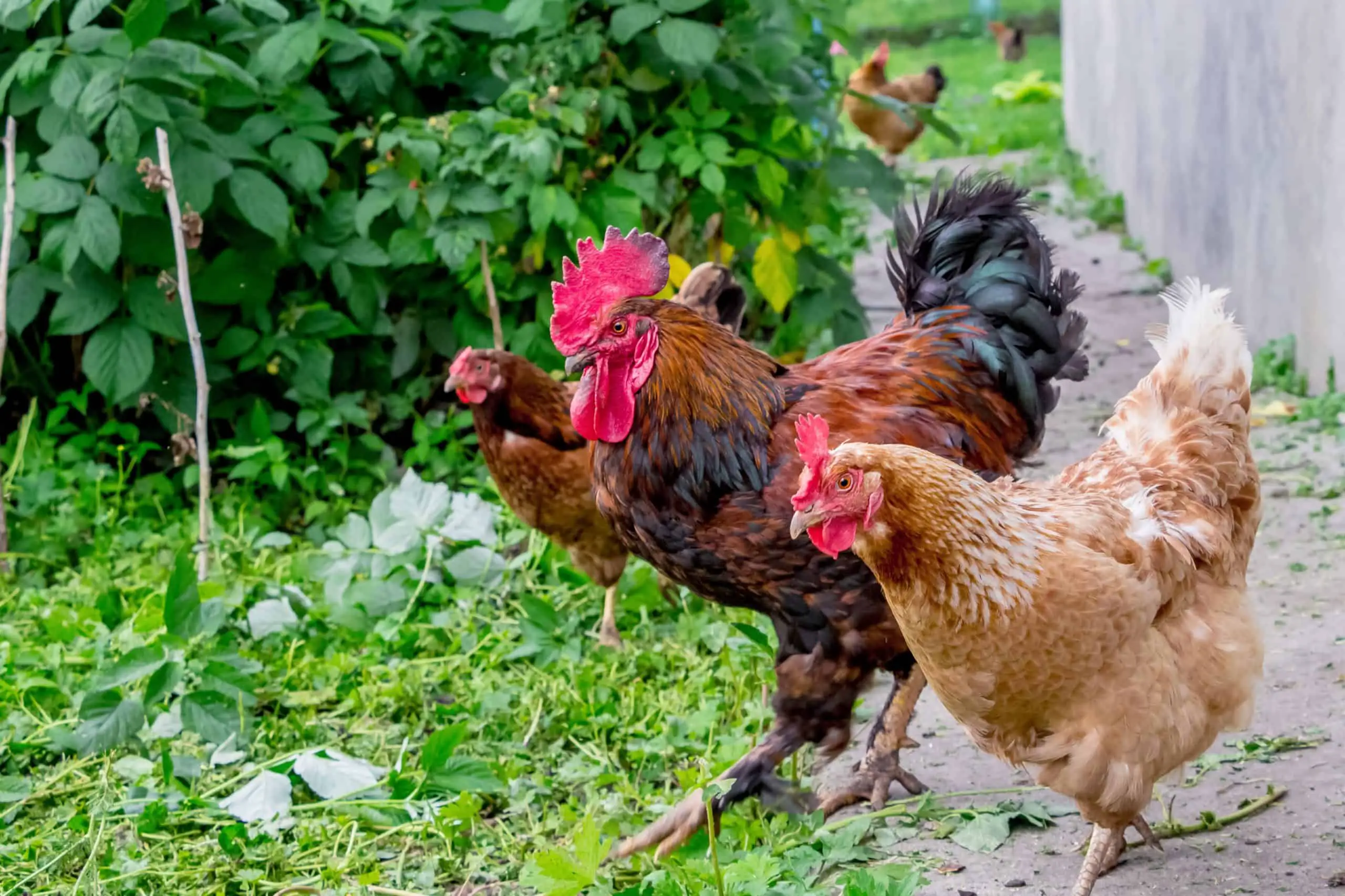
Are traditional glyphosate weed killers pet-safe?
Glyphosate is a widely available chemical weed killer and is described as safe for pets to use in treated areas once the chemical is completely dry.
Glyphosate weed killers are generally made with a chemical called glyphosate, which is the ingredient that kills weeds.
The main concern with this type of product for chickens specifically would be ingesting it by licking their paws after they have walked in the garden sprayed with these products.
If your chicken has access to an area where you’ve just applied leafy or granular herbicide and you don’t think your pet ingested any, then there shouldn’t be any problem.
It’s also important not to let pets eat vegetation near treated areas until it becomes brown as they will likely consume some plant material too. And if animals do accidentally find themselves eating plants from around treated areas, make sure to contact poison control immediately.
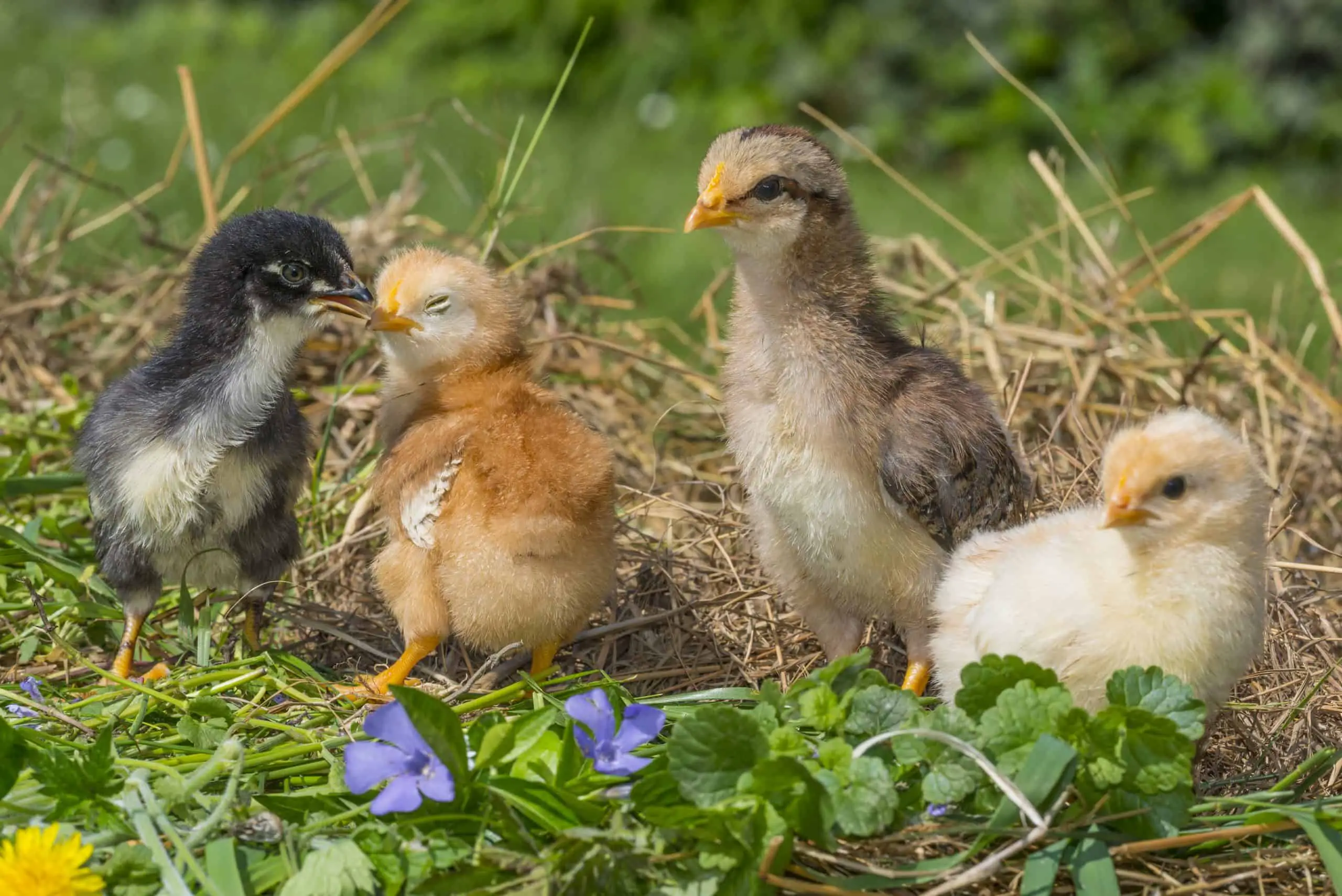
Are traditional Resolva weed killers pet-safe?
Resolva weed killers contain Glysophate, which is toxic to chickens and other pets if ingested.
Resolva weed killer is safe for chickens. It contains a lower concentration of the active ingredient Triclopyr which means that it’s safer to use around pets and children because there are fewer fumes released when using this spray, making it easier on your pet’s lungs.
Resolva also has natural ingredients in its formula including cinnamon oil, clove oil, and raw sugarcane extract.
Are traditional RoundUp weed killers pet-safe?
Roundup weed killers are not pet-friendly, so it is best to find an alternative or only use them if you know your pet will be locked away safe in the house until you have finished and the weed killer is dry.
Roundup weed killers have been found harmful in many studies and can be fatal if ingested.
It would also depend on how much Roundup was used because some brands might say they’re safe for pets while other brands could cause poisoning or death with just a tablespoon of the chemical being ingested.
Chickens do need to stay away from these types of weeds killer as well as any that contain glyphosate unless you know the brand doesn’t hurt them.
If your chicken ingests roundup weed killer then contact your veterinarian immediately who will treat this like any type of rodenticide ingestion by giving supportive care until passed through their system. Glyphosate-based weed killers may take up to 24 hours to pass through the system.
It would also depend on how much Roundup was used because some brands might say they’re safe for pets while other brands could cause poisoning or death with just a tablespoon of the chemical being ingested.
Chickens do need to be watched carefully for any signs of poisoning after ingesting glyphosate-based weed killers.
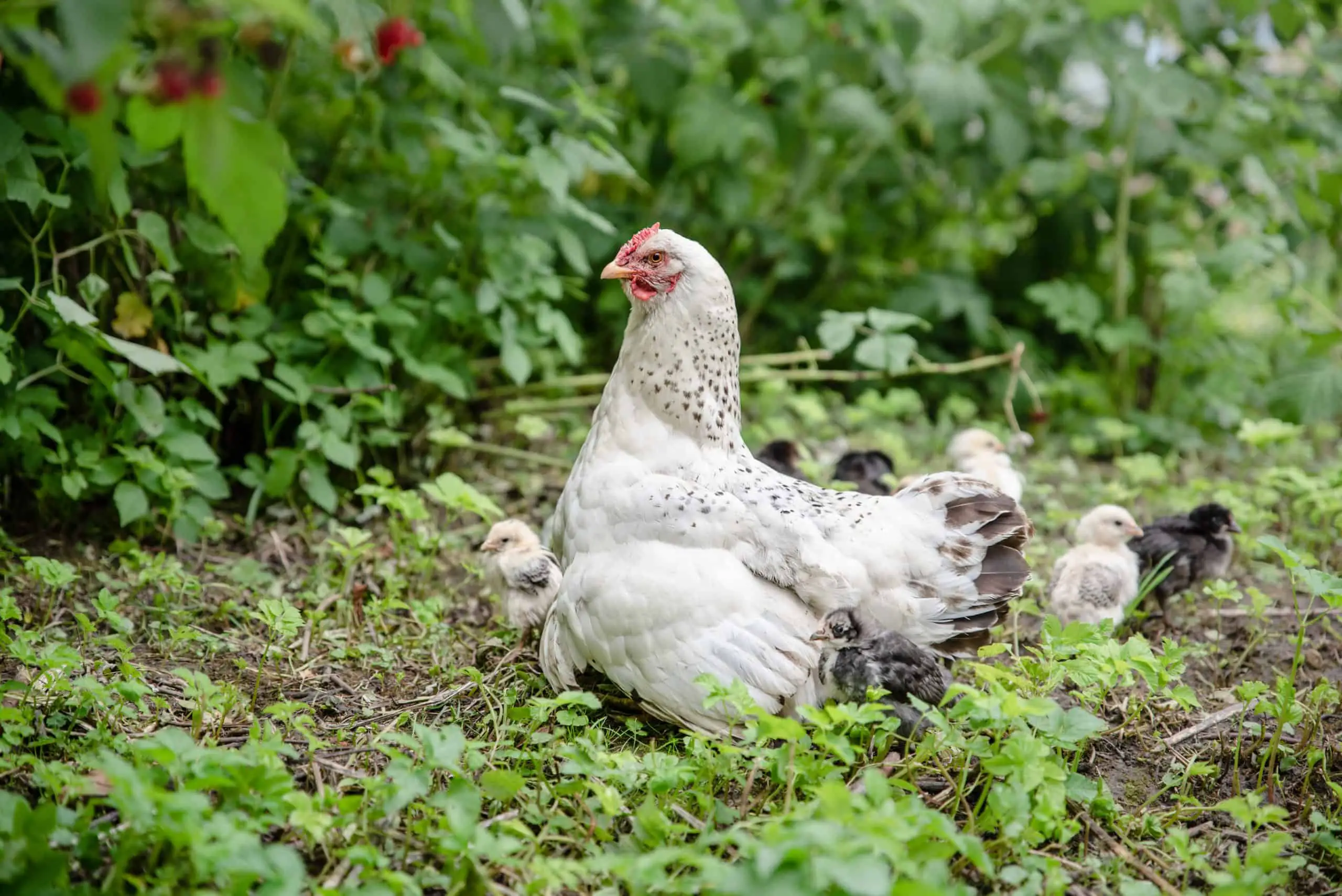
Alternatives to weed killers around chickens
It can be hard to know what weed killer is safe for your chicken because many types of chemicals used in pesticides are risky if swallowed or inhaled by animals, which includes chickens as well.
Many gardeners use two different products: one containing an active ingredient like vinegar or saltwater (which does not contain harmful chemicals) and another with more potent ingredients so weeds don’t grow back quickly ” says veterinarian Dr. Jennifer McReynolds.
In addition to being safe for animals, using a herbicide that is pet-friendly can also be more environmentally friendly and less expensive than other alternatives.
For example, if you use vinegar or saltwater as your first line of defence against weeds in the garden then it will not require any additional applications of weed killer with harsher chemicals.” – says veterinarian Dr. Jennifer McReynolds.
Other ingredients in weed killers that are safe for pets include clove oil or citric acid. Additionally, vinegar makes a good option when used as a herbicide because it contains acetic acid, which can kill weeds without affecting your plants too much.
Permethrin-based products such as Bayer Advanced All-In-One Rose & Flower Care Insect Killer also won’t harm pets but they do come with precautions so always read the label before use.
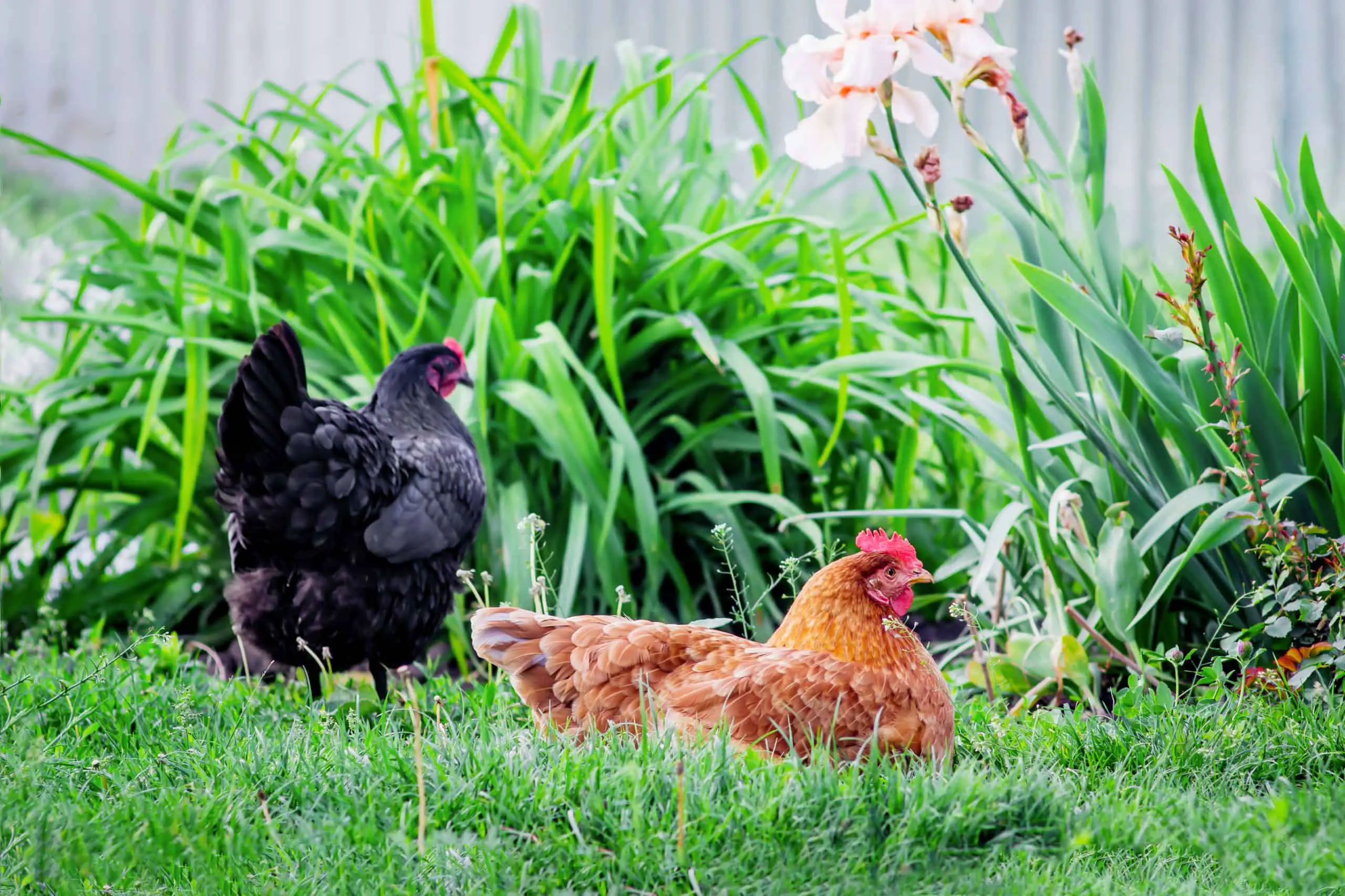
Pet-safe weed killers for chickens
If you’re using a herbicide that’s safe for chickens, it will specifically say on the label that it is pet-friendly. This means they’ve done toxicology reports to ensure this product doesn’t have any negative effects when ingested by pets.” – Dr. McReynolds
For those who have chickens, weeding around plants on their property should always involve wearing protective goggles and gloves so they don’t accidentally ingest anything harmful.
If you want to know what type of chicken-friendly weed killers are available, take a look at this list of chicken-friendly weed killers below:
Best pet-friendly weed killers
Our list below is our recommendation for the best weed killers for getting the job done whilst drying in a reasonable amount of time to ensure the area is left pet-safe after the treated area has been sprayed. Please remember, that no weed killer is 100% safe around pets.
- Gallup Home & Garden Glyphosate Weed Killer
- Roundup Tough Weed Killer
- Golden Swan White Vinegar
- Roundup Fast Action Weed Killer Pump ‘N Go Ready To Use Spray
- Weedol Pathclear Weed Killer Liquid Concentrate
- Resolva Pro Ready To Use Weed Killer
How to choose your pet-friendly weed killer
Make sure to look at the label on your chosen weed killer to see if it says ‘pet friendly’ or not. If it does not say this then do NOT buy it as there may be a risk of poisoning animals in the household!
Simply type ‘pet-friendly weed killers‘ into Google or Amazon and the list above will consist of the best recommendations for your garden. To save time, we have reviewed these products and provided the best comparison in the following article – Top 6 best pet-friendly weed killers
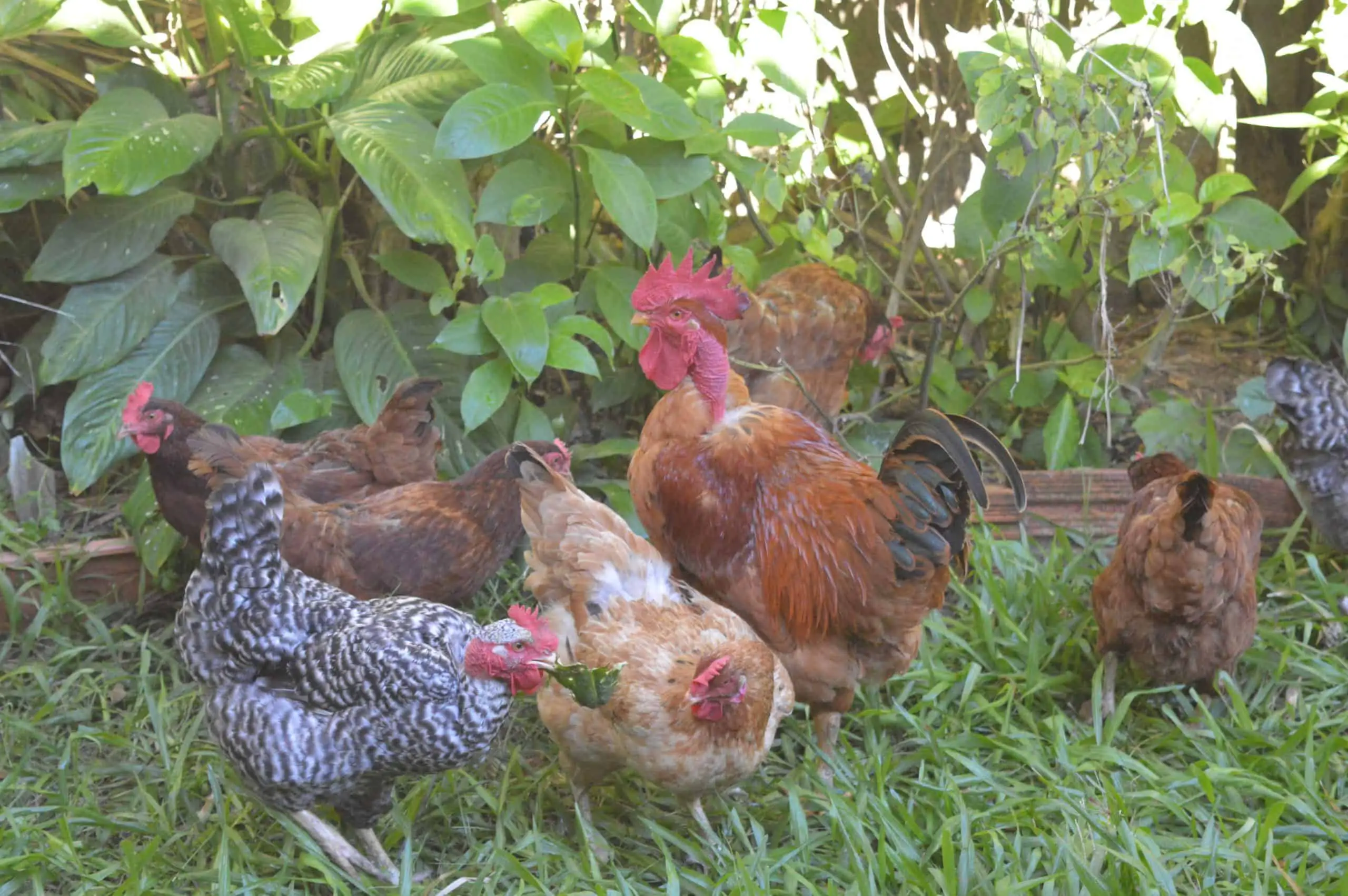
What to do if your chicken ingests weed killer
Take your chicken immediately to the vets and let them know what type of weed killer it was.
If you’re not sure what to do, call your vet or the ASPCA Animal Poison Control Hotline at (888) 426-4435 for help. UK only.
Final Thoughts
A quick way to check whether the weed killer you’re using for pets may have dangerous side effects on them is by checking its MSDS (Material Safety Data Sheet) which should come as part of this product’s packaging.
Spraying on a non-windy day and when no animals are visibly around you is best. Where possible always lock your chicken away – out of harm and safe. That way you can get on with the job in hand and allow adequate time for the weed killer to dry and be safe from both animals and humans alike.
Always read the label and stay safe. Remember to kill the weeds and not your plants.

